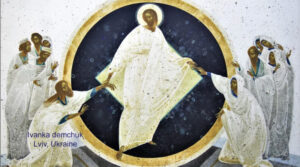by Bishop Robert BarronOctober 24, 2012
Many of the Catholic Church’s teachings are vilified in both the high and popular cultures, but none more than its doctrines concerning marriage and sexuality. Time and again, the Church’s views on sex are characterized as puritanical, life denying and hopelessly outdated — holdovers from the Bronze Age. Above all, critics pillory the Church for setting unreasonable limits to the sexual freedom of contemporary people. Church leaders, who defend traditional sexual morality, are parodied as versions of Dana Carvey’s “church lady” — fussy, accusatory, secretly perverse and sex-obsessed.
AUTHENTIC BIBLICAL CHRISTIANITY IS NOT PURITANICAL
Let me respond first to the charge of puritanism. Throughout the history of religion and philosophy, a puritanical strain is indeed apparent. Whether it manifests itself as Manichaeism, Gnosticism or Platonic dualism, the puritanical philosophy teaches that spirit is good and matter is evil or fallen. In most such schemas, the whole purpose of life is to escape from matter, especially from sexuality, which so ties us to the material realm. But authentic Biblical Christianity is not puritanical. The Creator God described in the book of Genesis made the entire panoply of things physical — planets, stars, the moon and sun, animals, fish and even things that creep and crawl upon the earth — and found all of it good, even very good. Accordingly, there is nothing perverse or morally questionable about bodies, sex, sexual longing or the sexual act. In fact, it’s just the contrary. When, in the Gospel of Mark, Jesus himself is asked about marriage and sexuality, he hearkens back to the book of Genesis and the story of creation: “At the beginning of creation God made them male and female; for this reason a man shall leave his father and mother and the two shall become as one. They are no longer two but one flesh” (Mk. 10:6-8). That last sentence is, dare I say it, inescapably “sexy.” Plato might have been a puritan, and perhaps John Calvin too, but Jesus most certainly was not.
WHAT SEPARATES THE CHRISTIAN VIEW FROM, SAY, THE “PLAYBOY” PHILOSOPHY?
So given this stress on the goodness of sex and sexual pleasure, what separates the Christian view from, say, the “Playboy” philosophy? The simple answer is that, for Biblical people, sexuality must be placed in the wider context of love, which is to say willing the good of the other. It is fundamental to Catholic spirituality and morality that everything in life must be drawn magnetically toward love, must be conditioned and transfigured by love. Thus, one’s business concerns must be marked by love, lest they devolve into crass materialism; and one’s relationships must be leavened by love, lest they devolve into occasions for self-interested manipulation; even one’s play must be directed toward love, lest it devolve into mere self-indulgence. Sex is no exception to this rule. The goodness of sexual desire is designed, by its very nature, to become ingredient in a program of self-forgetting love and hence to become something rare and life enhancing. If you want to see what happens when this principle is ignored, take a long hard look at the hookup culture prevalent among many young — and not so young — people today. Sex as mere recreation, as contact sport, as a source only of superficial pleasure has produced armies of the desperately sad and anxious, many who have no idea that it is precisely their errant sexuality that has produced such deleterious effects in them. When sexual pleasure is drawn out of itself by the magnetic attraction of love, it is rescued from self-preoccupation.
A CATHOLIC MARRIAGE: A VEHICLE OF GOD’S GRACE TO THE WIDER WORLD
Now there is a third step as well, for human love must be situated in the context of divine purpose. Once Jesus clarified that male and female are destined to become one flesh, he further specified that “What God has joined together,” no human being should put asunder. When I was working full time as a parish priest, I had the privilege of preparing many young couples for marriage. I would always ask them, “Why do you want to be married in church?” After some hesitation, the young people would invariably respond with some version of “Well, we’re in love,” to which I would respond, “I’m delighted that you’re in love, but that’s no reason to be married in church!” My point was that entering into a properly sacramental marriage implied that the bride and groom realized that they had been brought together by God and precisely for God’s reasons, that their sexuality and their mutual love were in service of an even higher purpose. To make their vows before a priest and a Catholic community, I would tell them, was tantamount to saying that they knew their relationship was sacramental — a vehicle of God’s grace to the wider world. This final contextualization guaranteed that sexuality — already good in itself and already elevated by love — had now something truly sacred.
DOES SELF-INDULGENT SEXUALITY LEAD TO TRUE AND LASTING JOY?
Our culture has become increasingly Nietzchean, by which I mean obsessed with the power of self-creation. This is why toleration is the only objective value that many people recognize, and why freedom, especially in the arena of sexuality, is so highly prized. It is furthermore why attempts to contextualize sex within higher frameworks of meaning are so often mocked as puritanism or fussy antiquarianism. Thank God that, amidst the million voices advocating self-indulgent sexuality, there is at least the one voice of the Catholic Church shouting “No,” a no in service of a higher Yes!
Source: SEX, LOVE, AND GOD: THE CATHOLIC ANSWER




